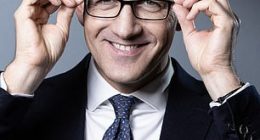Analysis: from anti-racism protests to trans rights, who gets to choose topics where impartiality matters is a live issue
Tim Davie has a problem. When the BBC director general was appointed a year ago, he said restoring trust in the BBC’s impartiality was his first policy objective. With one eye on securing a future licence fee funding settlement with a hostile government, he suggested the corporation needed to be “free from political bias” and shed the idea that its output represented a narrow viewpoint.
But now he’s implementing the policy, he’s finding the devil is in the detail. Who exactly gets to define what impartiality means? Which topics – such as the climate crisis – no longer require dissenting voices, in the eyes of the BBC? And what happens when some of your own staff believe that certain topics simply should not be up for debate?




